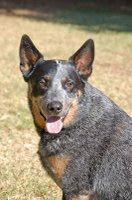 (click on the photograph to view a larger version in a new window)
(click on the photograph to view a larger version in a new window)The
Glendale Public Library is pleased to announce that its
Oral History Collection is now available through the Library's website. The collection features both traditional one-on-one interviews (conducted by the
Glendale Planning Department in the 1990s) and historical recordings of events sponsored by the Glendale Historical Society in the 1950s.
The recordings, in some cases being made available for the first time, can be listened to through the media player (Windows Media, Real, etc.) on any computer--at home, school, or even in the Glendale Public Library.
The image above is one of many found in the
Special Collections Room in the Glendale Central Library. The Special Collections Room contains news clippings, books, maps, and other materials that cover the history of Glendale, neighboring cities, and California in general. The collection is particularly useful for local history and genealogy research projects.
Special Collections also houses the
Cat Collection, one of the largest collections of feline-related materials in the world.The Special Collections Room is currently open Tuesdays and Thursdays from 10 a.m. to 12 p.m and 1 to 3 p.m., and by appointment. Please call (818) 548-2037 for additional information.
 It's Thanksgiving week. Many of us are thankful for the end of hot, dry days and the enjoyment of cool evenings where we can sit indoors in a comfortable sweater with a cup of hot chocolate or hot cider next to us while we read.
It's Thanksgiving week. Many of us are thankful for the end of hot, dry days and the enjoyment of cool evenings where we can sit indoors in a comfortable sweater with a cup of hot chocolate or hot cider next to us while we read. With time off from work, in between family to dos, catch a little bit of classic reading with Louisa May Alcott, Laurence Sterne, C. S. Lewis, or Jin Ba. You can go literary modern with James Agee, Nancy Mitford, Arundhati Roy, or Alberto Moravia. Classic fantasists are on the menu with Madeleine L'Engle, Nelson Slade Bond, L. Sprague de Camp, and science fiction's Frederick Pohl and Poul Anderson. Top it off with the poetry and art of William Blake or the philosophy of Baruch Spinoza.
With time off from work, in between family to dos, catch a little bit of classic reading with Louisa May Alcott, Laurence Sterne, C. S. Lewis, or Jin Ba. You can go literary modern with James Agee, Nancy Mitford, Arundhati Roy, or Alberto Moravia. Classic fantasists are on the menu with Madeleine L'Engle, Nelson Slade Bond, L. Sprague de Camp, and science fiction's Frederick Pohl and Poul Anderson. Top it off with the poetry and art of William Blake or the philosophy of Baruch Spinoza. Answer to Last Week's Question: Mary Ann Evans, the woman who wrote as George Eliot, was a woman in Victorian England when women were considered to be "silly" novel writers. She had planned to publish as Marion Evans. Contemporaneous with her, however, was a famous woman who became the wife of the British Prime Minster, himself a novelist, Benjamin Disraeli, and her name was Mary Anne Evans. Somehow the name George Eliot was decided on for the novel Adam Bede which secured its author a reputation as a great writer. Because an imposter, a man, claimed to be the successful novelist, Mary Ann Evans came out as the real George Eliot and Victorian society accepted her as she published several more great novels, albeit under the male name. Besides this, Evans refused Victorian ideas of piety and in fact lived unmarried, though as married, for over twenty years to a man who could not divorce his wife, who had several children by other men in their open marriage. After he died Evans finally did marry, but to an unstable man twenty years her junior. The last years of her life which will make good screen fodder, her changing impact on the literary world for women, are depicted in the recent novel The World Before Her by Deborah Weisgall.
Answer to Last Week's Question: Mary Ann Evans, the woman who wrote as George Eliot, was a woman in Victorian England when women were considered to be "silly" novel writers. She had planned to publish as Marion Evans. Contemporaneous with her, however, was a famous woman who became the wife of the British Prime Minster, himself a novelist, Benjamin Disraeli, and her name was Mary Anne Evans. Somehow the name George Eliot was decided on for the novel Adam Bede which secured its author a reputation as a great writer. Because an imposter, a man, claimed to be the successful novelist, Mary Ann Evans came out as the real George Eliot and Victorian society accepted her as she published several more great novels, albeit under the male name. Besides this, Evans refused Victorian ideas of piety and in fact lived unmarried, though as married, for over twenty years to a man who could not divorce his wife, who had several children by other men in their open marriage. After he died Evans finally did marry, but to an unstable man twenty years her junior. The last years of her life which will make good screen fodder, her changing impact on the literary world for women, are depicted in the recent novel The World Before Her by Deborah Weisgall.
 Annette Gordon-Reed
Annette Gordon-Reed Peter Matthiessen
Peter Matthiessen Mark Doty
Mark Doty Judy Blundell
Judy Blundell

























